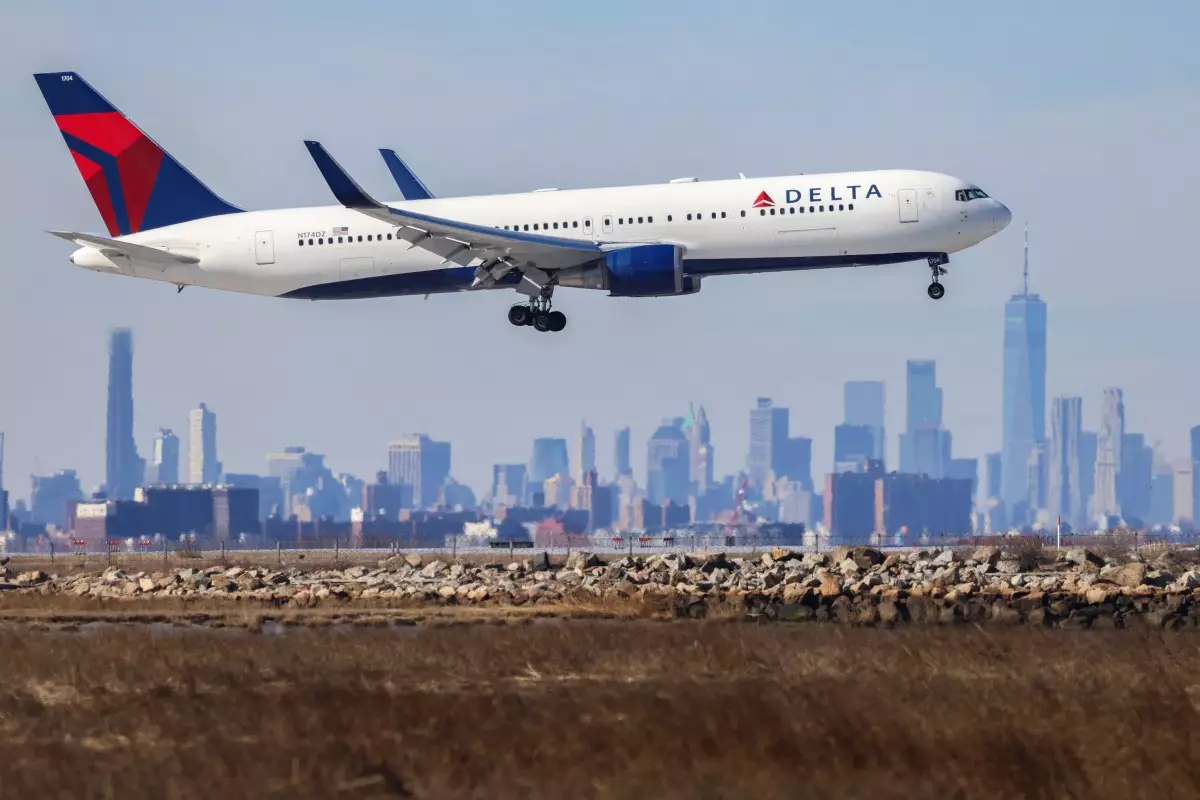As the Consumer Electronics Show (CES) evolves into a premier platform for showcasing technological advancements across various industries, Delta Air Lines has firmly established itself as a notable participant. The airline’s presentations have often captivated audiences with their promise of innovation. At CES 2025, Delta made headlines once again by booking the Sphere venue to unveil a series of technological updates aimed at enhancing passenger experience. However, the question arises: are these updates revolutionary, or merely reactive measures to remain competitive in a rapidly evolving industry?
One highlight of Delta’s announcement this year was the introduction of an AI assistant called Delta Concierge, set to enhance the airline’s mobile app. Scheduled to roll out throughout the year, this feature will enable passengers to interact using either voice or text. On the surface, it sounds appealing, especially in today’s landscape, where AI has become a ubiquitous part of daily life. However, the proposed functions—such as alerts for passport expirations and guidance to departure gates—feel notably basic. They risk being perceived as superficial innovations since similar alerts can easily be managed through existing platforms and services without the need for an AI assistant.
While Delta aims to provide proactive advice for travelers, including insights on local weather and visa requirements, the reality is that these features are entering a field already populated by other tech-savvy solutions. The assistant’s functions may enhance convenience, but they arguably do not represent a groundbreaking leap forward in airline technology. Instead, they serve as mere enhancements to an already established service model that many airlines are likely adopting.
Another critical announcement from Delta revolved around the modernization of its in-flight entertainment system. The forthcoming “cloud-based” model set for release in 2026 boasts impressive features, including 4K HDR displays and Bluetooth compatibility. Additionally, Delta aims to increase onboard content storage to a whopping 96 terabytes, allowing for a more versatile in-flight experience. However, those familiar with current industry trends might recognize that Delta is lagging behind some competitors who have already integrated similar features into their offerings.
United Airlines, for instance, has begun refreshing its fleet with enhanced entertainment options, including 4K displays and Bluetooth connectivity—elements perceived as standard in the competitive airline market today. While Delta’s commitment to incorporating free access to YouTube Premium and YouTube Music will likely be well-received, it begs the question of whether these enhancements are enough to distinguish Delta in a landscape where other airlines provide comparable or even superior services.
In an attempt to capture the public’s imagination, Delta also revealed ambitious plans for a collaboration with Airbus on the fello’fly project. This intriguing concept suggests the possibility of aircraft flying in close formation—much like birds in a flock—to enhance fuel efficiency. While the idea is undoubtedly innovative, the practicality of implementing such a system remains a significant hurdle, primarily due to regulatory issues. Given the complexities of the aviation industry, which is heavily governed by safety regulations, the timeline for real-world application of this concept appears dauntingly distant.
Such lofty ambitions may seem like a strategic bid to position Delta as an industry pioneer, but they could also come off as wishful thinking. This juxtaposition between outlining visionary projects and executing tangible updates creates a disparity that critics may be quick to highlight.
In summation, while Delta’s announcements at CES 2025 certainly reflect a focus on improving passenger experience through technology, they also underline a critical tension: the balancing act of innovation against the backdrop of competitive necessity. As the airline industry continues to evolve rapidly in the face of technological advancement, it is imperative for Delta—and others—to ensure that its innovations are not just reactive, but genuinely transformative. The future of air travel hinges on the ability of airlines to not only keep pace with changing expectations but also to lead with groundbreaking solutions that fundamentally alter the travel experience.

